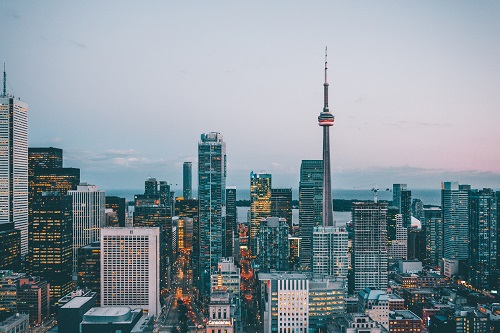If you are a Canadian citizen or permanent resident, you can apply for public health insurance, for subsidised low-cost healthcare. The public healthcare system in Canada is funded through taxes, although some provinces charge a monthly premium. The monthly premium is waived for low income families. You will need to apply for a health insurance card first, and present this at all medical clinics, hospitals, etc. when you are seeking treatment.Canada has multiple provinces and territories, and each has its own health insurance plan. Therefore, the plan that you apply to is regional, and must be geographically aligned with the region you will be living in. However, when it comes to emergency medical care, even if you are in a different province, your healthcare card will be accepted. In fact, emergency medical care is provided even if you do not have a healthcare card. If you have a medical emergency, you should go straight to a hospital, and not to a walk-in clinic, as these may charge a fee if you are outside of your province cover area.
Eligibility criteria
Criteria can vary from one province to another, but typically you are considered eligible to apply if:
• You are physically in your province for 153 days in any given 12‑month period
• The province you are covered by is your primary home
• You are a Canadian citizen or permanent resident
• You are an indigenous person (registered under the federal Indian Act)
• You have applied for permanent residence, and have not yet been denied
• You are in the province of your cover, holding a valid work permit and working full-time there for at least six months
• You hold a valid work permit under the federal ‘Live-in Caregiver Program’
• You are a refugee or other protected person (as defined by the Immigration and Refugee Board of Canada)
• You are studying in the province at an accredited/approved educational institution and have proof of enrolment.
Your spouse and any dependants (usually defined as dependent children under the age of 21) qualify automatically if you are eligible.

Waiting period & applications
Sometimes there is a required waiting period for public health insurance, usually up to three months, before you can qualify as eligible. This varies from one province to another, so may not be applicable in the region where you live. If you are subject to a waiting period, it is highly advisable to purchase private health insurance to cover you for the duration of the waiting period.
You will need to submit an application for your health insurance card in person at your provincial ministry of health. The links to each region’s ministry of health can be found listed below:
• Alberta
• British Columbia
• Manitoba
• New Brunswick
• Newfoundland and Labrador
• Northwest Territories
• Nova Scotia
• Nunavut
• Ontario
• Prince Edward Island
• Quebec (available in French only)
• Saskatchewan
• Yukon
It is best to apply for your health insurance card as soon as possible once you have arrived in Canada. In most provinces, a separate card will be issued to each family member. Application forms are available at doctor’s surgeries, hospitals, pharmacies and your provincial ministry of health office.
In addition to the completed and signed application form, you will need to present:
• Your birth certificate (and any dependants’ birth certificates, such as young children’s)
• Marriage certificate (if applicable)
• Proof of permanent residence or citizenship (whichever is applicable)
• Your passport (and the passports of any dependants)
What is and is not covered
Public healthcare in Canada covers basic medical services. You may also need private insurance, in order to cover the services that government plans do not fully cover.
The healthcare services covered by the government include:
• Examinations and treatment by doctors, including specialists
• Maternity and fertility treatments
• Many types of surgery
• Hospital care, including x-rays
• Laboratory tests
• Most immunisations
The following things are not covered under the government public healthcare service:
• Ambulance service fees
• Prescription drugs
• Dental care
• Prescription glasses and contact lenses
In some circumstances, what is not covered under your provincial healthcare package may be covered by workplace employment benefits.

Cover for refugees & protected persons
The Interim Federal Health Program (IFHP) is the appointed body who, in certain circumstances, provides temporary health insurance to:
• Refugees
• Protected persons
• Refugee claimants
This is an interim measure on a temporary basis for those defined by the Immigration and Refugee Board of Canada, pending refugee placement or other actions.
Reapplying & reviews
Since health insurance cards are issued on a provincial basis, if you move to a different province in Canada, then you will need to apply for a new health insurance card that covers you within that region. Some provincial authorities may say that if you spend more than 212 days in any 12‑month period outside of the province of cover, then you will need to reapply for valid public health cover.
If you are told that you no longer qualify for your provincial health insurance card due to the above, or for any other reason, then you can request a review, which is essentially the same as an appeal.
In order to submit a review request, you will need to write a letter, fax or email to your principal ministry of health that includes:
• The reason/s why you believe you still qualify
• Supporting information or documents to show you still qualify
• Up-to-date contact information
If you are aware of reasons why you might not be considered qualified anymore, but have not specifically been told, you can still action the above, as otherwise you may not be covered when you next seek medical treatment with your health insurance card.

